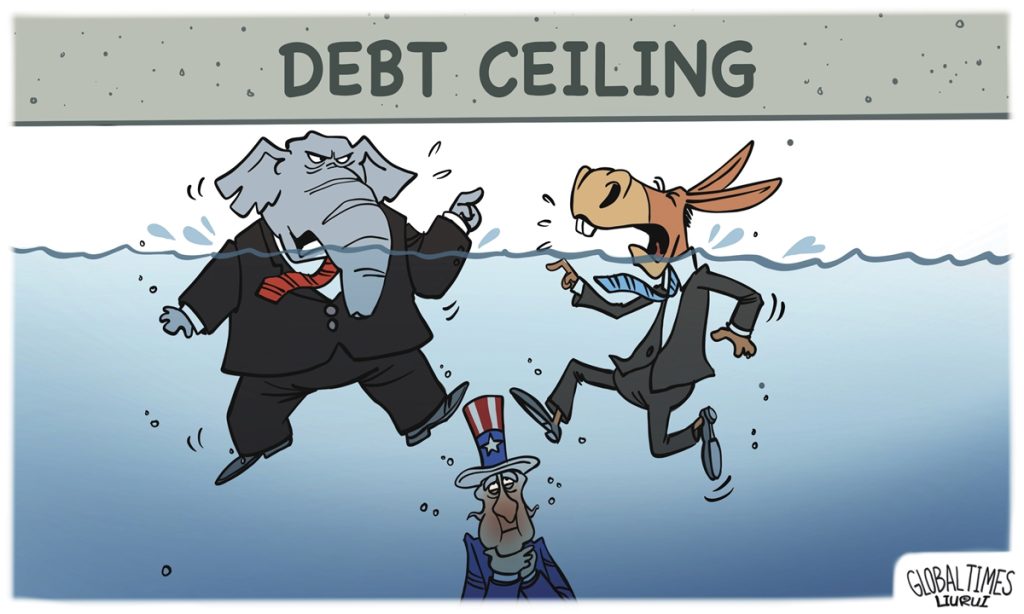Spending bill failure highlights 'confusion in US political parties'

The US House of Representatives failed on Thursday to pass a new Republican spending bill after President-elect Donald Trump sank a bipartisan stopgap bill. A Chinese expert said the latest development again highlighted the confusion in US political parties, and the rising US debt, which is at the center of the bill, is the result of irresponsibility on the part of successive governments, which has also cast a shadow of uncertainty over the world economy.
The package failed by a vote of 174-235, leaving lawmakers just one day to approve new funding to avert a government shutdown. A prior bipartisan deal was scuttled after Trump and Elon Musk came out against it on Wednesday, according to a report by Reuters.
Thursday's unsuccessful bill largely resembled the earlier version that Musk and Trump had blasted. It would have extended government funding into March and provided $100 billion in disaster relief and suspended the debt. At Trump's urging, the new version would have suspended limits on the national debt for two years - a maneuver that would make it easier to pass the dramatic tax cuts he has promised, according to the report.
"The bill's failure again highlighted the confusion in US political parties. If the US government shuts down, Americans' daily lives and work may be affected, which is an irresponsible move," Zhou Mi, a senior research fellow at the Chinese Academy of International Trade and Economic Cooperation, told the Global Times on Friday.
Government funding is due to expire at midnight on Friday. If lawmakers fail to extend that deadline, the US government will begin a partial shutdown that would interrupt funding for everything from border enforcement to national parks and cut off paychecks for more than 2 million federal workers. The US Transportation Security Administration warned that travelers during the busy holiday season could face long lines at airports, according to Reuters.
After the bill failed, Trump said in a post on Truth Social that "Congress must get rid of, or extend out to, perhaps, 2029, the ridiculous Debt Ceiling. Without this, we should never make a deal."
The debt limit - commonly called the debt ceiling - is the maximum amount of debt that the US Department of the Treasury can issue to the public or to other federal agencies. On December 16, 2021, lawmakers raised the debt limit by $2.5 trillion to a total of $31.4 trillion. On January 19, 2023, that limit was reached, and the US debt currently amounts to $36.17 trillion.
"Suspending US debt limits is at the center of the revised bill, and the debt issue has been politicized by factors such as the conflict between the Democratic and Republican parties," Zhou said.
The continually rising US debt has become a persistent problem for the US government, Zhou said, attributing it to successive US governments' irresponsibility, including a chronic inability to make ends meet.
The high cost of goods in the US due to tariffs has also affected people's purchasing willingness, resulting in more obvious constraints on the country's economy, he noted.
"The political incapacity of the US government in resolving huge debts is seriously eroding the country's credibility, which not only undermines the market's confidence in the US government and the dollar, but also drags down the development of the global economy," Zhou noted.
"In addition to affecting US debt holders, the exchange rate and financial market shocks for other countries are also of concern," the expert said.